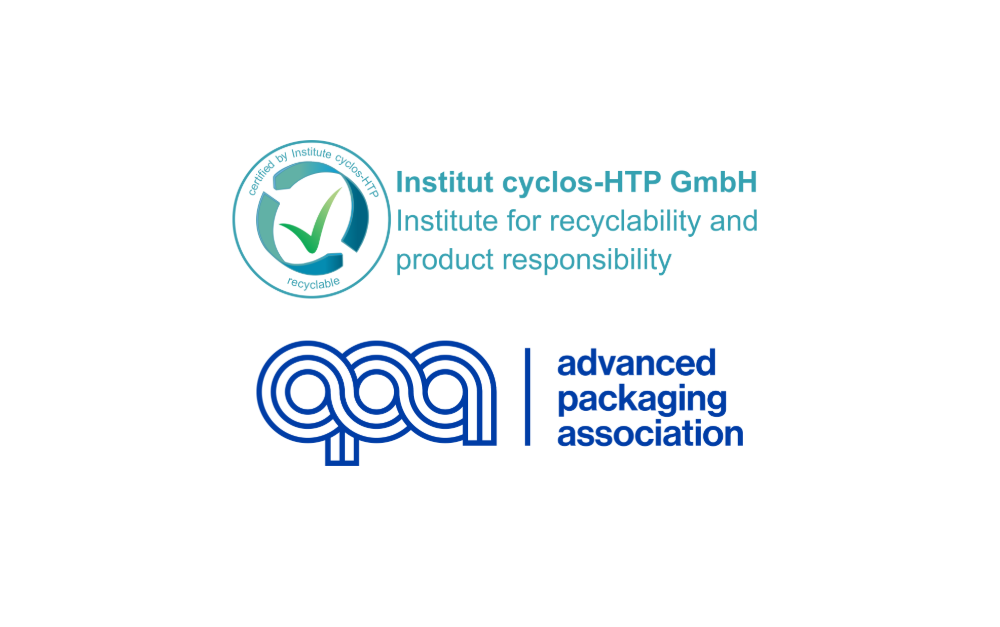
Polyamide packaging: Towards a sustainable future
Brussels, [14-01-2025] – Polyamide, a versatile polymer celebrated for its superior mechanical properties, has often been mischaracterized as non-recyclable. However, recent advances in industry practice and scientific research are challenging this misconception. The joint analysis by Institut Cyclos-HTP GmbH (CHI) and the Advanced Packaging Association (APA) offers new perspectives on polyamide (PA) layers in packaging films and provides initial guidance on design-for-recycling principles.
Independent institutions such as CHI play a key role in evaluating recyclability standards for packaging materials. By conducting rigorous testing, these organizations provide essential insight into the design of packaging to optimize recycling. CHI recently investigated the recyclability of PA-containing packaging and shared findings that highlight its potential to contribute to more sustainable solutions.
CHI’s science-based industry standard
CHI has developed the first widely accepted, science-based industry standard for assessing recyclability. This standard includes a detailed methodology that examines material composition, simulates sorting and recycling processes, and assesses the quality of recycled material. Compatibility testing is particularly important as it shows how polyamide interacts with other materials in recycling streams. This approach allows CHI to evaluate the practical recyclability of polyamide- containing packaging while advancing more sustainable packaging solutions.
APA’s commitment to polyamide’s recyclability
Founded in 2024 by industry leaders, the APA advocates for materials like polyamide that, when designed for recyclability according to industry standards, can be efficiently integrated into recycling processes. Polyamide can be combined with materials such as polyethylene and polypropylene to create recyclable multi-layer structures, making it adaptable to different packaging needs. Recyclability depends on several factors, including the specific polyamide grade, packaging material design and additives used.
Key factors for improving the recyclability of polyamide-containing packaging
To improve the recyclability of polyamide-containing packaging, several critical factors must be considered:
- Material composition: Careful material selection and optimal ratios within multi-layer structures are essential. Limiting non-recyclable components and ensuring layer compatibility will significantly improve recyclability.
- Packaging design: Simplifying packaging by reducing layers and complexity facilitates efficient sorting and recycling.
- Additive selection: Selecting additives that do not interfere with recycling processes.
- Sorting and recycling infrastructure: Access to advanced sorting and recycling facilities plays an important role in the recyclability of polyamide-containing packaging.
The recyclability advantage of polyamide
The choice of materials for packaging should balance performance and environmental impact, and polyamide (PA) offers design for recyclability. Polyamide integrates well into existing recycling streams, enabling efficient mechanical recycling and broader applications for recycled products.
“To dispel the myths around polyamide-containing packaging, we must build awareness among consumers, brand owners, and policymakers,” says Nicola Bucchioni, President of the Advanced Packaging Association (APA). “Embracing design standards that prioritize recyclability, reducing non-recyclable components, and fostering innovation in recycling technologies are critical steps toward a sustainable future. At APA, we advocate for polyamide as a high-performance raw material that not only aligns with the waste hierarchy but also offers protection for perishable goods, ultimately reducing food waste.”
Polyamide-containing advanced packaging supports recyclability within the polyethylene waste stream, backed by independent, scientifically validated protocols. “We invite industry members to join APA, explore our position paper, and participate in this vital dialogue to drive sustainable packaging innovation,” adds Nicola Bucchioni.
A call for industry collaboration
Through collaboration between industry, academia and political stakeholders, the full potential of polyamide-containing packaging can be realized and contribute to a more sustainable future.
For more information, please read the full interview on “The future of polyamide in packaging“
For members of the media interested in learning more about the recyclability and sustainability potential of polyamide packaging, we invite you to contact the Advanced Packaging Association (APA). Our team is eager to share further insights, answer questions, and connect you with experts who can elaborate on the science and strategies that will shape the future of sustainable packaging.
About the Advanced Packaging Association
The Advanced Packaging Association (APA) was founded in 2023 by key players in the polymer industry who believe that polyamide can help shape a better future for us all. By raising awareness and working together, we can ensure that polyamide continues to play an important role in the transition to sustainable solutions for the packaging industry, applying research and technology to the real world.





